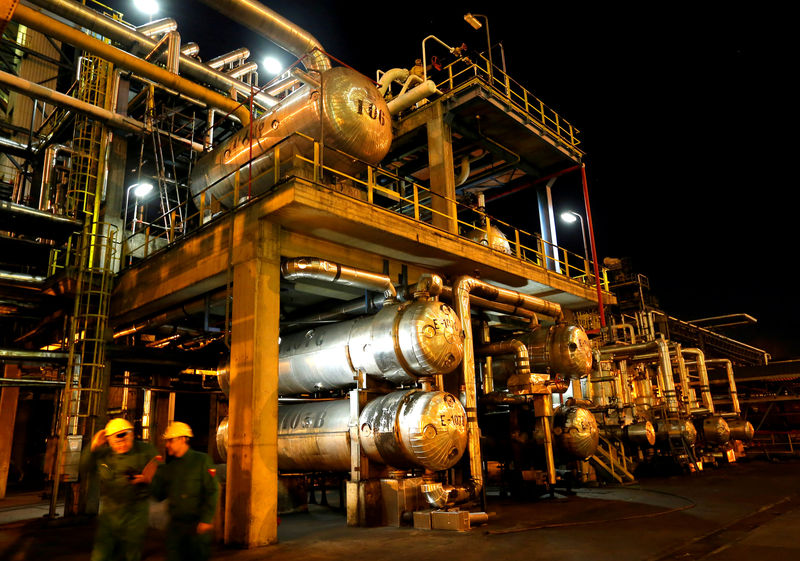By Amanda Cooper
LONDON (Reuters) - The oil market may see supply and demand rebalance if OPEC and Russia deliver a meaningful enough production cut, but it will still take until the second half of 2017, Vitol [VITOLV.UL] chief executive Ian Taylor said on Monday.
The Organization of the Petroleum Exporting Countries agreed in Algiers last month to limit output to bring oil supply more quickly into balance with demand.
Taylor, whose heads the world's largest trader of physical crude oil, said that while the price would get a boost from a cut of 1 million barrels per day (bpd), he was unsure OPEC members could agree on who should cut and by how much.
"If they really give us 1 million bpd, I think you're going to have to say oil is going to be in the high 50s, early 60s," Taylor said at the annual Reuters Commodities Summit, referring to the price of a barrel of oil in dollars.
"That for sure will start having an impact, much more on paper immediately, and will bring the market back to balance in the second half of 2017. But can they really give us a million between OPEC and non-OPEC? It's a tough call," he said.
The oil price (LCOc1) has risen by 45 percent so far this year to around $52 a barrel, in large part driven by the prospect of OPEC tackling a global supply glut.
OPEC, led by Saudi Arabia, has indicated it could cut production by 700,000 bpd, but not how this would be shared.
Iran is struggling to recapture market share lost to five years of international sanctions over its nuclear programme, while Libya and Nigeria are pushing to raise output against a backdrop of geopolitical upheaval and violence.
Major non-OPEC rival Russia said it believes a cut would be a positive for the market, but has not indicated whether or not it would limit its own production, which is close to record highs above 11 million barrels per day.
More modest global economic growth has prompted a more cautious view on demand from forecasting agencies such as the International Energy Agency and OPEC itself. [IEA/M] [OPEC/M]
The prospect of a steep rise in output from outside OPEC, such as from the Kashagan field in Kazakhstan, and the likelihood of a return of volumes from within the cartel, specifically from Libya and Nigeria, could keep pockets of the market in surplus, Taylor said.

"One of the features of the market at the moment is probably physical crude is a bit longer than the paper markets are telling us," he said adding the Mediterranean market could end up being significantly oversupplied.